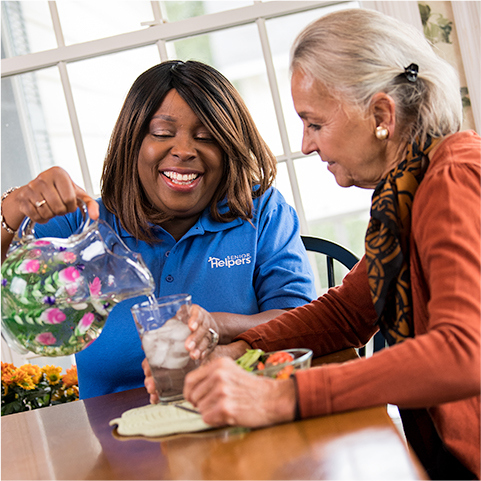Should My Elderly Loved One Live With Me?
Professional elderly care experts usually record a significant increase in the number of calls they receive in January, probably because holiday visits made it obvious to many families that an older loved one or a loved one living with disabilities cannot live at home alone. Family members may have seen some troubling signs such as the filthy state of the house, quite a number of unopened mails and unpaid bills, spoilt food still left in the refrigerator or in the kitchen etc. or probably the person is having difficulty in taking medications at the appropriate time, and missing medical appointments. Even just a video call may reveal the older adult is losing weight, wearing soiled clothes, or seems disoriented.
Once you realize a loved one needs help, you should consider asking them to live in the home of their adult child or another relative. Many people adopted this method because of the pandemic.
However, even before the pandemic, this was a notable trend. As far back as centuries ago, older adults were living with their children. People assumed they preferred it that way. But when Social Security and other senior support services came, older adults could live at home alone.
During the last few decades, a change was observed. A recent poll from Pew Research Center showed that the number of seniors living in an adult child’s home has increased over the years. Why, you ask?
The price of housing contributes to this. The dynamics of the relationship between the young adults and their older loved ones has changed, especially in the US. Now we have more working and long-distance family caregivers.
If you are a family caregiver who lives and works in another town away from your elderly loved one, you will probably be considering if he or she staying with you isn't the better option.
If you are considering this option, here are questions to ask yourself first.
1. How will this affect the current people living with me? How comfortable am I with the elderly relative moving to my home? How well does she get along with my spouse, children or others who live in the home? How compatible are our lifestyles? What about throwing parties, entertaining guests or playing music? Is there enough space for everyone in the house?
2. How suitable is my house for my loved one's needs? Is my place an upgrade or downgrade from where my loved one is living before? Is there space for their belongings? Do I need to create a backyard cottage or a granny pod?
3. How friendly Is my neighborhood to seniors? How safe are the sidewalks for the elderly? What about the crime rate in my community? Are there opportunities available for my loved one to make friends and socialize? What about transportation and support services for seniors or people with disabilities?
4. How many changes do I have to make to make my home a better fit?
You may have to do some modifications if some structures in your house will be obstructive to your loved one. It could be simple modifications like adding extra lights, putting extra handrail on the stairs, removing obstructive decorations or it could something more complex like adding a wheelchair ramp or widening the doorways. The advantage is that the house will be suitable for you too in old age.
5. What are the current care needs of my loved ones? What about future changes? Can my loved one cope with daily activities or does he or she require help doing things like bathing, dressing, going to the toilet, preparing meals or transportation? Who will willingly provide that care? What more care is needed? Would the children be required to help with the elderly care?
6. If my home or neighborhood is not suitable for my loved one, where can she stay? The nursing home?
Fortunately, there are other options such assisted living or independent senior apartments. Don't completely rule out the option of the elderly one staying at his or her own home. With professional in-home care and some modifications, staying at home is not a bad idea.
7. Also learn about support services that can help you with moving your loved one at home. Solicit support from other family members too. A geriatric care manager can help too. Professional in-home care can relieve you of the burden.
You can hire a professional in-home caregiver from home care agency. The agency will assign a suitable caregiver to your family. They relieve the family of many tasks that might have interferred with their work or school, their own personal time and eventually negatively affect the other family members' relationship with that elderly person.
For people who require hands-on medical treatment and supervision, skilled nursing care can be arranged. Nonmedical in-home care can also be provided for seniors who need help with their daily activities. Such services are customized to each person’s needs and include medical reminders, help with hygiene, transportation, monitoring and supervision, support for exercise, socialization, and companionship. If your loved one has dementia, you should hire a caregiver from an agency that provides cognitive training for its employees.
